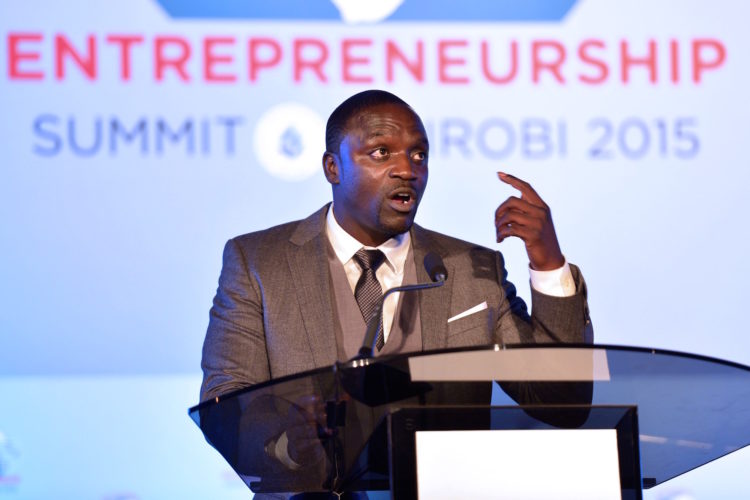When we think about the economic power of the 150 million or so Africans in the diaspora, we tend to fixate on the billions sent annually to support families back home. But there’s another way money is finding its way back to Africa and we should start talking about it.
Some people – you might actually be one of them – are leveraging their dual identity to expand economic opportunities back home. It’s time to introduce a new breed of entrepreneurs: ‘diaspreneurs’. Do you know someone who is involved in business back in Africa in some way? Well, diaspreneurs is what you should call them!
Younger diaspreneurs are perhaps more unsure about how they fit into the ‘Africa Rising’ story.
Diaspreneurs are important agents for economic development. After living in other countries for some time, individuals (like my parents – hi mum, hi dad!) are bringing back capital and a different business acumen to stimulate economic activity back on the continent. Often it’s older diaspreneurs who relocate to set up a business; while younger ones still live in the west, entrepreneurs from afar with the occasional visit.

After seeing their children through university, my parents and in-laws set off back home to set up shop – either in industries they worked in during their time in the migrant country or most often, in fields they really wanted to work in when they first came over. As a result, these new businesses are having an impact on local marketplaces (often positively) and encouraging innovation.
Younger diaspreneurs are perhaps more unsure about how they fit into the ‘Africa Rising’ story. Others are more cocky – they see themselves as part of the brain drain: ‘How can Africa rise without my smarts and wisdom?’ They have a clear identity and pride in their ‘Africanness’ and an assumed notion of leadership. Lack of stellar professional recognition in the West can all be corrected with the move back home they often think. A move they will file under patriotic migration, not economic migration, obviously!
Our diaspreneur has no clear place to go for business planning and implementation support.
Entrepreneurship is a powerful driver of economic growth and job creation: it creates new companies and jobs, opens up new markets and nurtures new skills. Looking through an economic development lens, diaspreneurs represent an important pool of potential entrepreneurs. Yet, they can face legal, cultural and linguistic obstacles that don’t always need to be there.
Unlike Indian and Irish diaspora, our diaspreneur has no clear place to go for business planning and implementation support. Many governments back home aren’t doing enough to attract and facilitate more of these diaspreneurs – whatever shape and size they come in. Many still require aspiring diaspreneurs to follow complex procedures.
Imagine a fresh diaspreneur from a US impact investment fund trying to navigate the business opportunities in Computer Village of Lagos. They’ve convinced their boss to let them scope a business case for developing a high-speed 10 Gigabytes-per-second WiFi service for West Africa’s largest IT market.
Certainly, any diaspreneur who doesn’t know how to ride a danfo bus from their hotel to Ikeja doesn’t deserve the title. Regardless, no reliable platform from the government exists for our US diaspreneur to explore the WiFi investment… And who knows where the conductor will let them off?
My diaspreneur friends are the only people that have the determination/foolishness [delete as appropriate] to get past the lack of transparency, weak enforcement of the rule of law and corruption to stimulate private enterprise back home. President Akinwumi Adesina of the African Development Bank agrees; he’s one of the leaders in that global elite who gets it. We need to make more noise about it so others will too.
Members of the African diaspora tend to be wealthier than resident citizens, making them more likely to have means to invest in their homelands. While situations like civil war or contested elections make investment unattractive to most business people, diaspreneurs often possess the social connections, cultural understanding, willingness and resiliency it takes to invest in markets or economies that traditional investors view as risky.
IT project managers from London are setting up rabbit farms that feed thousands in Nigeria.
But people in the diaspora often find it tricky to access different financial services of banks on the continent (e.g. providing security or guarantees to obtain credit). Promoting financial products catered to diaspreneurs can help remedy this issue; Somalia is a good example of a country doing this. Supporting diaspreneurship, for example through access to micro-credit assistance schemes, is a vital channel to foster people in the diaspora to contribute to the economy and their societies back home.Get ready: IT project managers from London are setting up rabbit farms that feed thousands in Nigeria. Advisors to governments in the West are setting up micro-finance systems in Ghana. Business consultants in the States are working on Bitcoin systems in Kenya.
We need to start by identifying diaspreneurs and raising the awareness within our communities, donors and aid agencies about entrepreneurship back home. If enough diaspreneurs got together, our governments back home could be encouraged to create new investment vehicles that tap into this pool of diaspora investment capital. We need to make it easier for members of the diaspora to invest in their countries of heritage. This isn’t about Western aid or remittances, this is about business.
***
If you’re around in London, why not join some of these diaspreneurs at The African Healthcare Hackathon at Google Campus?
In short, this is an intense, fun and high energy weekend event where people in London and innovation hubs across Africa form teams to brainstorm and develop solutions to the problems of real-life African organisations and initiatives. At the end of the weekend, the team that presents the best solution wins the competition.
